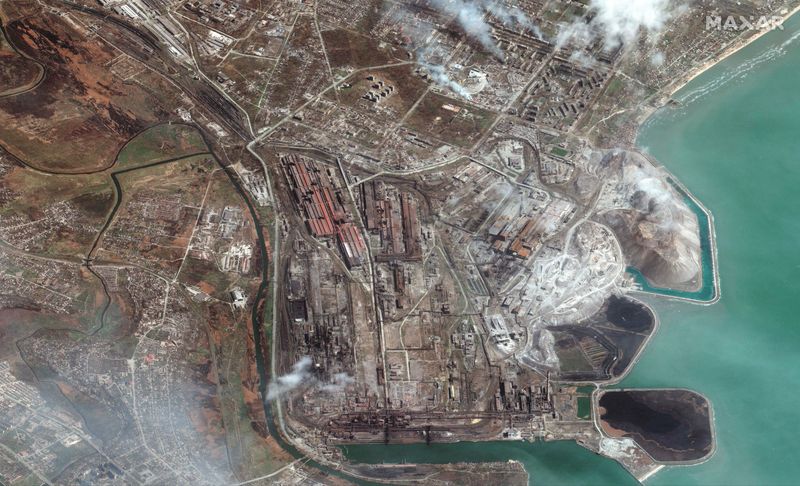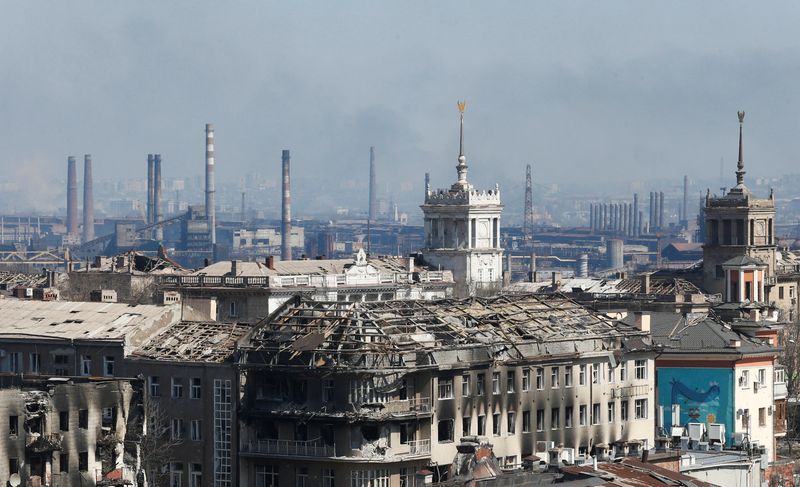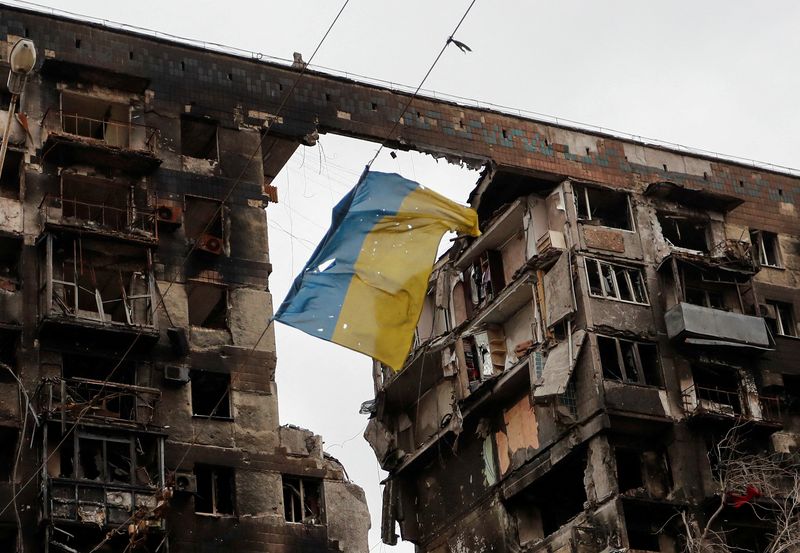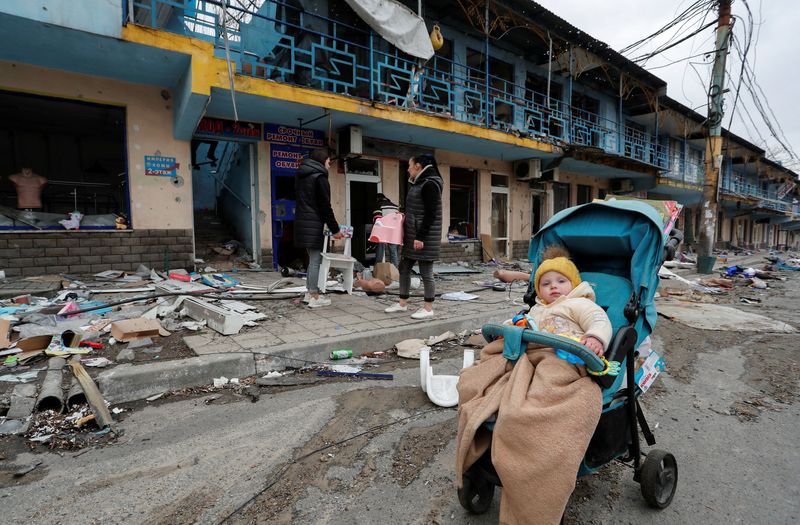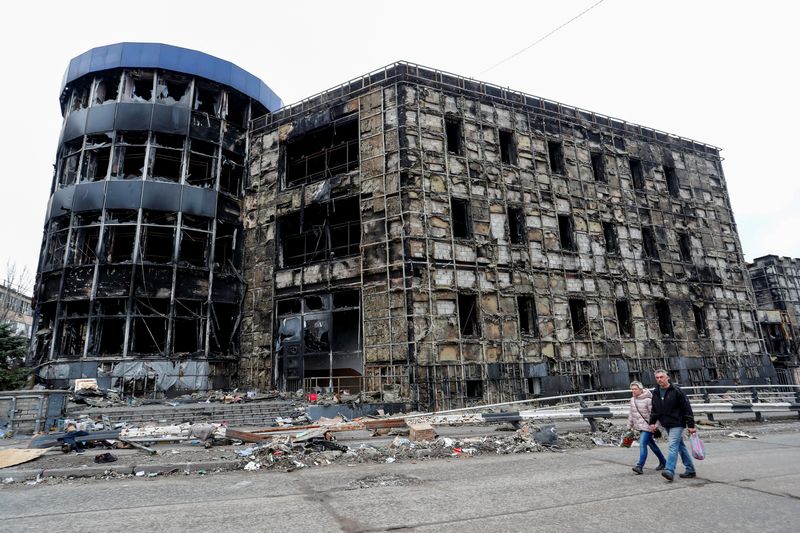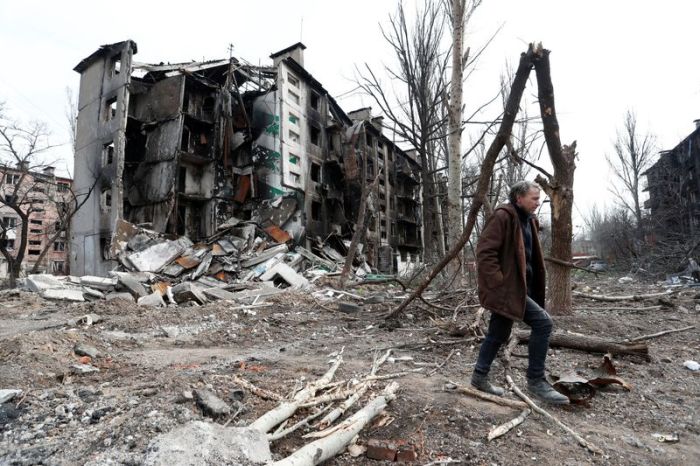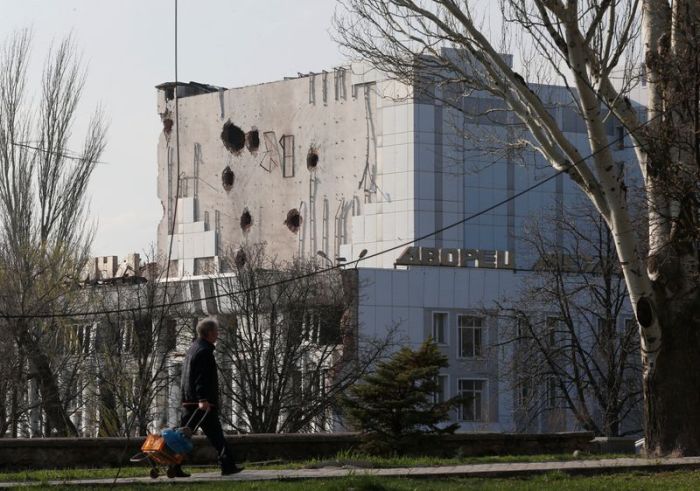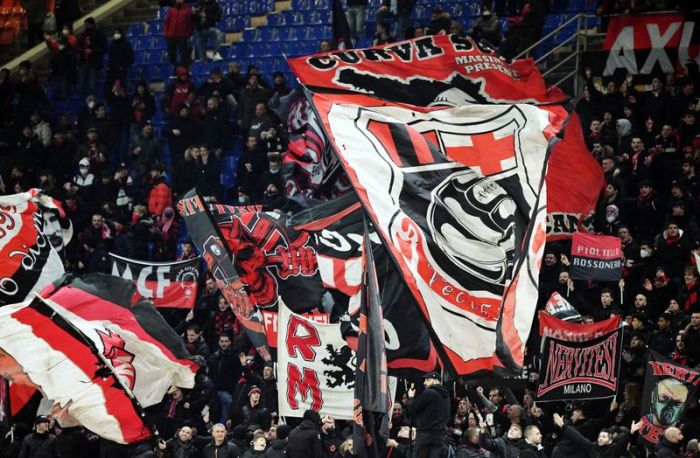(Reuters) – Explosions rumbled and smoke rose this week from a steel making district in besieged Mariupol where dwindling Ukrainian forces are holed up as Russia tries to take full control of its biggest city yet.
The Azovstal iron and steel works, one of Europe’s biggest metallurgical plants, has become an aptly apocalyptic redoubt for Ukrainian forces who are outgunned, outnumbered and surrounded seven weeks into Russia’s invasion of Ukraine.
In the east of the southern port devastated by weeks of shelling, the plant lies in an industrial area that looks out to the Sea of Azov and covers more than 11 square kilometres (4.25 square miles), containing myriad buildings, blast furnaces and rail tracks.
“The Azovstal factory is an enormous space with so many buildings that the Russians … simply can’t find (the Ukrainian forces),” said Oleh Zhdanov, a military analyst based in Kyiv.
“That’s why they (the Russians) started talking about trying a chemical attack, that’s the only way to smoke them out,” Zhdanov said.
Ukraine has said it is checking unverified information that Russia may have used chemical weapons in Mariupol. Russia-backed separatists have denied using chemical weapons.
In peace time, the Azovstal iron and steel works pumped out 4 million tonnes of steel a year, 3.5 million tonnes of hot metal and 1.2 million tonnes of rolled steel.
Like the city’s other Illich Steel and Iron Works, Azovstal is held by Metinvest, the group controlled by billionaire Rinat Akhmetov, Ukraine’s richest man.
A Russian separatist deputy commander said on Russian state TV on Monday that Moscow had captured 80% of the port, but that resistance continued and that Ukrainian forces had all tried to “exit towards the Azovstal factory”.
He described the factory as a “fortress in a city”.
The city’s defenders include Ukrainian marines, motorised brigades, a National Guard brigade and the Azov Regiment, a militia created by far-right nationalists that was later incorporated into the National Guard.
It is the Azov Regiment, whose destruction is among Moscow’s war objectives, that is prominently associated with Azovstal and one of its founders, Andriy Biletskiy, has also called it “the fortress of the Azov”.
Russian President Vladimir Putin calls the invasion a “special operation” for the “demilitarisation and denazification of Ukraine” but Ukraine and the West say Russia launched an unprovoked war of aggression.
“Azov is indeed on Azovstal’s territory … These are huge territories with workshops that can’t be destroyed from the air, which is why the Russians are using heavy bombs,” said Sergiy Zgurets, a military analyst.
Russia’s defence ministry said on Wednesday that more than 1,000 soldiers of Ukraine’s 36th Marine Brigade, including 162 officers, had surrendered in Mariupol, though Ukraine has not confirmed that.
Ukrainian presidential adviser Oleksiy Arestovych later said that members of the 36th Marine Brigade had managed to punch through in a “highly risky manoeuvre” to join up with the Azov Regiment.
“The 36th brigade avoided being ripped to pieces and now have serious additional opportunities, essentially getting a second chance,” he said.
The lack of mobile reception and internet in the city means information is scant. Ukraine has kept tight control of things like troop numbers that could compromise their defence.
The Azov’s Biletskiy told Ukraine’s NV news site on March 20 that Ukraine had a total of 3,000 fighters defending the city against up to 14,000 Russians.
DIFFICULT TO OCCUPY
Private U.S. satellite company Maxar was able to peer down at the raging battles from space on Tuesday.
“Smoke and fire was observed coming from a number of buildings throughout the western and eastern sections of the city as well as in and near the Azovstal iron and steel works factory — the site of ongoing battles between Russian and Ukrainian forces,” it said.
An EU security source told Reuters it was to difficult to say how long the Ukrainians could hold on and also difficult for Russia to occupy the whole city because of the industrial complexes. “There are underground tunnels systems under the steel factory.”
“Mariupol is very important to Putin because after a victory there (and the surrender of Azov-troops) he can claim that the ‘denazification’ process is successful,” the source added.
An assistant to Mariupol’s mayor said on Wednesday that Russia planned to celebrate victory in the city on May 9, the date Moscow marks victory over Nazi Germany in World War Two with an annual parade on Red Square.
Zhdanov, the military analyst, said he saw little chance of Ukrainian forces from the outside breaking through Russia’s siege.
“How many supplies the defenders have and how long they can hold on is anyone’s guess. But they have no other way out. They’re surrounded on all sides, they have to stand till the end. If they give in, they will not be spared,” he said.
(Reporting by Natalia Zinets; Additional reporting by Pavel Polityuk; editing by Grant McCool)

